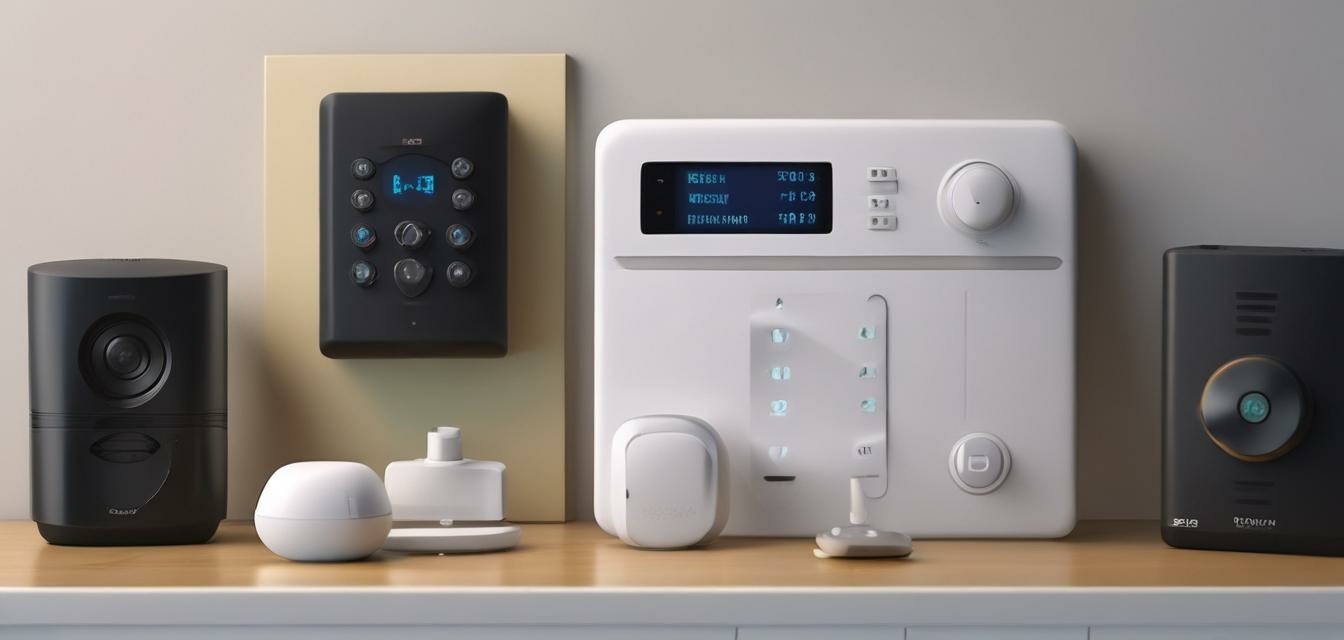
How to Choose the Right Alarm System for Your Home
- Understand the different types of alarm systems available.
- Consider features like monitoring options, compatibility, and installation types.
- Evaluate your home's specific security needs to select the right system.
- Read comprehensive comparisons and guides to make informed choices.
Choosing the right alarm system for your home is crucial in ensuring the safety of your family and property. With the wide range of options available, it can be overwhelming to decide which system suits your needs. This guide will help you navigate the various alarm systems and highlight what features to look for in order to make the best decision.
Types of Alarm Systems
There are several types of alarm systems available on the market. Understanding these systems will help you in deciding which one aligns with your security needs.
| Alarm System Type | Description |
|---|---|
| Wired Alarm Systems | Hardwired to your home's electrical system, offer reliable connectivity but can be challenging to install. |
| Wireless Alarm Systems | Easy to install with minimal wiring. Connects to your home network for monitoring. |
| Monitored Alarm Systems | Connected to a monitoring service that alerts authorities in case of a breach. |
| Unmonitored Alarm Systems | Trigger alerts such as sirens or flashing lights but do not alert authorities directly. |
Essential Features to Consider
When choosing an alarm system, it’s important to evaluate specific features that align with your security requirements.
- Monitoring Options: Decide between self-monitoring or professional monitoring services.
- Compatibility: Ensure that the alarm system works with other home automation devices you may have.
- Installation: Choose between DIY or professional installation based on your comfort level.
- Smart Features: Look for systems with mobile app access for remote monitoring.
- Pricing: Compare not just the upfront costs but also ongoing fees for monitoring services.
Comparing Alarm Systems
To help you make an informed decision, here's a comparative look at some popular alarm systems.
| Feature | Wired System | Wireless System | Monitored System | Unmonitored System |
|---|---|---|---|---|
| Installation | Professional | DIY | Professional | DIY |
| Remote Access | No | Yes | Yes | No |
| 24/7 Monitoring | No | No | Yes | No |
| Cost | High upfront | Medium | High ongoing | Low ongoing |
Assessing Your Home’s Security Needs
Before making a choice, assess your home’s vulnerabilities and your lifestyle. Consider the following questions:
- What are the entry points to your home?
- Have you experienced any previous break-ins?
- Do you frequently travel or leave your home for long periods?
- What is your budget for installation and ongoing monitoring?
Conclusion
Choosing the right alarm system doesn't have to be a daunting task. With a clear understanding of the different types of systems available and the features that matter most, you can select the security solution that fits your specific needs. For more information about alarm systems, explore our Home Security Buying Guides for further insights.
Pros
- Enhanced home security and peace of mind.
- Remote monitoring options provide convenience.
- Flexible options to suit various budgets.
- Smart integrations increase functionality.
Cons
- Installation costs can vary.
- Ongoing monitoring fees can add up.
- Wireless systems may experience interference.
